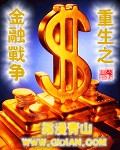战争与和平(下)-第21部分
按键盘上方向键 ← 或 → 可快速上下翻页,按键盘上的 Enter 键可回到本书目录页,按键盘上方向键 ↑ 可回到本页顶部!
————未阅读完?加入书签已便下次继续阅读!
event are devoid of all common…sense; that they are inconsistent with one another; as; for instance; the murder of a man as a result of the declaration of his rights; and the murder of millions in Russia for the abasement of England。 But those justifications have an incontestable value in their own day。
They remove moral responsibility from those men who produce the events。 At the time they do the work of brooms; that go in front to clear the rails for the train: they clear the path of men’s moral responsibility。 Apart from those justifications; no solution could be found for the most obvious question that occurs to one at once on examining any historical event; that is; How did millions of men come to combine to commit crimes; murders; wars; and so on?
Under the existing complex forms of political social life in Europe; can any event be imagined which would not have been prescribed; decreed; commanded by some sovereigns; ministers; parliaments; or newspapers? Is there any sort of combined action which could not find justification in political unity; or in patriotism; or in the balance of power; or in civilisation? So that every event that occurs inevitably coincides with some expressed desire; and receiving justification; is regarded as the result of the will of one or more persons。
Whichever way the ship steers its course; there will always be seen ahead of it the flow of the waves it cleaves。 To the men in the ship the movement of those waves will be the only motion perceptible。
It is only by watching closely; moment by moment; the movement of that flow; and comparing it with the movement of the ship; that we are convinced that every moment that flowing by of the waves is due to the forward movement of the ship; and that we have been led into error by the fact that we are ourselves moving too。
We see the same thing; watching moment by moment the movement of historical personages (that is; restoring the inevitable condition under which all action takes place—the condition of the continuity of motion in time); and not losing sight of the necessary connection of historical figures with the masses。
Whatever happens; it always appears that that was foreseen and decreed。 Whichever way the ship turns; the waves gurgle in front of it; and neither guiding nor accelerating its movement; will seem to us at a distance to be moving arbitrarily and guiding the course of the ship。
Examining only those expressions of the will of historical characters which related to events as commands; historians have assumed that the events were dependent on the commands。 Examining the events themselves; and that connection in which the historical characters stand with the masses; we have found that historical characters and their commands are dependent on the events。 An incontestable proof of this deduction is to be found in the fact that; however many commands may be given; the event does not take place if there is no other cause to produce it。 But as soon as an event does take place—whatever it may be—out of the number of all the expressions of the will of different persons; there are always some which; from their meaning and time of utterance; are related to the events as commands。
Having reached this conclusion; we can directly and positively answer these two essential questions of history:—
1。 What is power?
2。 What force produces the movements of peoples?
1。 Power is a relation of a certain person to other persons; in which that person takes the less direct share in an act; the more he expresses opinions; theories; and justifications of the combined action。
2。 The movement of peoples is not produced by the exercise of power; nor by intellectual activity; nor even by a combination of the two; as historians have supposed; but by the activity of all the men taking part in the event; who are always combined in such a way that those who take most direct part in the action take the smallest share in responsibility for it; and vice versa。
In its moral aspect the cause of the event is conceived of as power; in its physical aspect as those who were subject to that power。 But since moral activity is inconceivable apart from physical; the cause of the event is found in neither the one nor the other; but in the conjunction of the two。
Or; in other words; the conception of cause is not applicable to the phenomenon we are examining。
In our final analysis we are brought to the circle of infinity; to that utmost limit; to which the human intellect is brought in every department of thought; if it is not merely playing with its subject。 Electricity produces heat; heat produces electricity。 Atoms are attracted; atoms are repelled。
Speaking of the mutual relations of heat and of electricity and of atoms; we cannot say why it is so; and we say it is so because it is unthinkable otherwise; because it must be so; because it is a law。 The same thing applies also to historical phenomena。 Why does a war or a revolution come to pass? We do not know。 We only know that to bring either result to pass; men form themselves into a certain combination in which all take part; and we say that this is so because it is unthinkable otherwise; because it is a law。
Chapter 8
IF HISTORY had to deal with external phenomena; the establishment of this simple and obvious law would be sufficient; and our argument would be at an end。 But the law of history relates to man。 A particle of matter cannot tell us that it does not feel the inevitability of attraction and repulsion; and that the law is not true。 Man; who is the subject of history; bluntly says: I am free; and so I am not subject to law。
The presence of the question of the freedom of the will; if not openly expressed; is felt at every step in history。
All seriously thinking historians are involuntarily led to this question。 All the inconsistencies; and the obscurity of history; and the false path that science has followed; is due to that unsolved question。
If the will of every man were free; that is; if every man could act as he chose; the whole of history would be a tissue of disconnected accidents。
If one man only out of millions once in a thousand years had the power of acting freely; that is; as he chose; it is obvious that a single free act of that man in opposition to the laws governing human action would destroy the possibility of any laws whatever governing all humanity。
If there is but one law controlling the actions of men; there can be no free will; since men’s will must be subject to that law。
In this contradiction lies the question of the freedom of the will; which from the most ancient times has occupied the best intellects of mankind; and has from the most ancient times been regarded as of immense importance。
Looking at man as a subject of observation from any point of view—theological; historical; ethical; philosophical—we find a general law of necessity to which he is subject like everything existing。 Looking at him from within ourselves; as what we are conscious of; we feel ourselves free。
This consciousness is a source of self…knowledge utterly apart and independent of reason。 Through reason man observes himself; but he knows himself only through consciousness。
Apart from consciousness of self; any observation and application of reason is inconceivable。
To understand; to observe; to draw conclusions; a man must first of all be conscious of himself as living。 A man knows himself as living; not otherwise than as willing; that is; he is conscious of his free will。 Man is conscious of his will as constituting the essence of his life; and he cannot be conscious of it except as free。
If subjecting himself to his own observation; a man perceives that his will is always controlled by the same law (whether he observes the necessity of taking food; or of exercising his brain; or anything else); he cannot regard this never…varying direction of his will otherwise than as a limitation of it。 If it were not free; it could not be limited。 A man’s will seems to him to be limited just because he is not conscious of it except as free。 You say: I am not free。 But I have lifted and dropped my hand。 Everybody understands that this illogical reply is an irrefutable proof of freedom。
This reply is an expression of a consciousness not subject to reason。
If the consciousness of freedom were not a separate source of self…knowledge apart from reason; it would be controlled by reasoning and experience。 But in reality such control never exists; and is inconceivable。
A series of experiments and arguments prove to every man that he; as an object of observation; is subject to certain laws; and the man submits to them; and never; after they have once been pointed out to him; controverts the law of gravity or of impenetrability。 But the same series of experiments and arguments proves to him that the complete freedom of which he is conscious in himself is impossible; that every action of his depends on his organisation; on his character; and the motives acting on him。 But man never submits to the deductions of these experiments and arguments。
Learning from experience and from reasoning that a stone falls to the ground; a man unhesitatingly believes this; and in all cases expects the law he has learnt to be carried out。
But learning just as incontestably that his will is subject to laws; he does not; and cannot; believe it。
However often experience and reasoning show a man that in the same circumstances; with the same character; he does the same thing as before; yet on being led the thousandth time in the same circumstances; with the same character; to an action that always ends in the same way; he feels just as unhesitatingly convinced that he can act as he chooses; as ever。 Every man; savage and sage alike; however incontestably reason and experience may prove to him that it is impossible to imagine two different courses of action under precisely the same circumstances; yet feels that without this meaningless conception (which constitutes the essence of freedom) he cannot conceive of life。 He feels that however impossible it may be; it is so; seeing that; without that conception of freedom; he would be not only unable to understand life; but could not live for a single instant。
He could not live because all men’s







